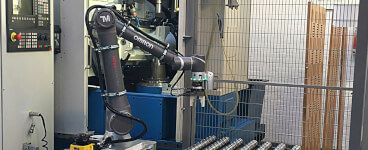Automation blog
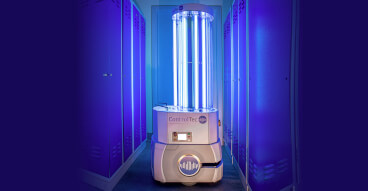
ControlTec helps Polish hospital tackle the pandemic with a UVC mobile robot
26 January, 2021 Using an OMRON LD mobile robot, ControlTec was one of the first companies in the world to develop a sterilisation robot equipped with a UVC irradiator.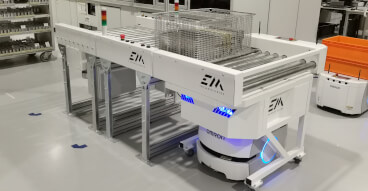
Fast and safe transport on the factory floor
18 January, 2021 Improved efficiency and seamless material supply: in Austria, Philips is automating material transport by using AMRs from OMRON.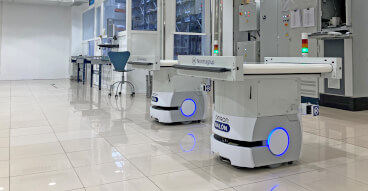
Improved flexibility, agility and traceability with mobile robots for Normagrup
06 January, 2021 Normagrup, which specialises in technologically advanced lighting, needed to automate the transport of materials between three production areas, the assembly area and an automated warehouse. This involved moving through narrow spaces shared with factory personnel.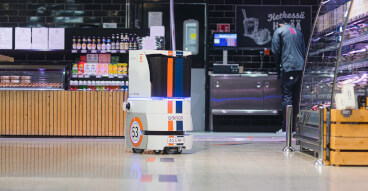
Mobile robot streamlines food deliveries
30 November, 2020 A whistling autonomous mobile robot has been seen recently moving around the corridors of shopping centre in Helsinki, Finland. Operated by OMRON’s solution partner Dimalog, the robot was taking part in a month-long ‘Home On-Demand’ automated courier service trial.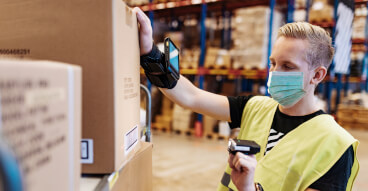
3 Ways COVID-19 is Impacting Logistics Operations in the UK (and what to do about it)
04 November, 2020 By Stuart Coulton, Regional Manager, OMRON UK North
Data paradise factory floor: get more out of your machine and production information
25 September, 2020 Strategic Data Science is an essential pillar of every Industry 4.0 scenario. A four-step data mining approach based on CRISP-DM supports successful projects.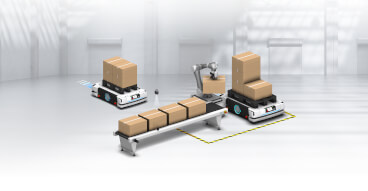
What to consider when selecting a mobile robot for heavy loads
11 September, 2020 Five questions to ask when selecting autonomous material transport technology for industrial applications.
Moving to e-mobility: seven tips for success
08 September, 2020 The automotive industry throughout Europe is changing. It’s been badly hit by the Covid-19 pandemic, which has exacerbated declining sales. And there have been other problems. For instance, the Center for Automotive Research (CAR) forecasts that German vehicle manufacturers and suppliers could lose a quarter of their total workforce by 2030. A similarly gloomy picture is also emerging in the UK. Offsetting this is a growing demand for electric cars, which could lead to many new jobs being created.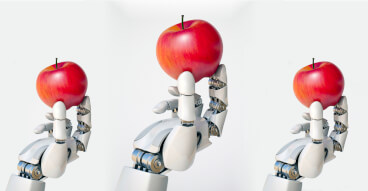
Factory automation: four tips for the future of food & beverage manufacturing
16 July, 2020 The coronavirus pandemic has posed major challenges to organisations of all types and sizes. In the food and commodity industry, companies have faced significantly reduced consumption and disrupted supply chains, while at-home consumption increased, and out-of-home consumption came near to a standstill. But how can manufacturers adapt their business strategies and production processes both now and in the longer term? The pandemic may provide an opportunity for rethinking outdated processes and procedures and enhancing them with concepts such as innovative robotics, sensor technology and holistic automation strategies.
Get the full value from your factory floor data with data sciences
19 June, 2020 Industry 4.0 and IIoT have been buzz words for several years and these concepts are actually implemented on more and more machines. A huge amount of data becomes available: machine data, data of the production process and data regarding the manufactured product. Big Data has entered the factory floor.
Zero-defect philosophy helps resolve the world’s future issues
05 June, 2020 Imagine the city center of a modern metropolis in 2030: a multitude of unmanned, electrically-powered vehicles driving swiftly and silently through the streets. These vehicles sense traffic lights and other road signs and make decisions using artificial intelligence. They avoid people, who unexpectedly cross their path. They detect and avoid dangerous situations before they occur. And they contribute to everyone’s health and safety. But what happens if the associated electrical systems fail? Omron is already addressing this problem today.